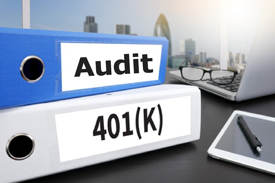 Photo Credit: adiruch
Photo Credit: adiruch
By James Redding, Senior Manager, Financial Audit
The July 31st reporting deadline for employee benefit plan Form 5500s will be upon us in the blink of an eye; it’s important for banks to be familiar with the 401(k) audit compliance rules before it’s time to file.
Understanding the guidelines will prevent a situation in which a bank only realizes a 401(k) audit is needed after its Form 5500 is rejected or being informed by its record-keeper. To determine whether or not your 401(k) plan needs an audit, you will need to calculate the number of participants as of the first day of the plan year. However, this is more complex because employees are considered participants as soon as they have satisfied the plan’s specific eligibility requirements (i.e., having been an employee for a set number of days, worked a minimum number of hours annually, etc.), whether or not they have enrolled or elected to join. Participant counts, all in all, include active employees and all eligible employees, along with terminated participants, such as separated, retired or deceased employees, who still have plan balances.
If a plan files as a large plan, the bank must complete Schedule H of Form 5500, which requires an audit. Generally speaking, plans with 100 or more participants qualify as large plan filers, and plans with fewer than 100 participants are considered small plan filers. However, under the 80/120 Participant Rule, you may continue to file the Form 5500 within the same category as in the previous year as long as there are between 80 and 120 participants at the beginning of the plan year. If, for instance, you filed as a small plan with 90 participants in 2015, and on January 1, 2016, the count grew to 110, the plan could still file as a small plan in 2016 according to the 80/120 rule. On the other hand, if the number of eligible participants reached 121, the plan would need to be filed as a large plan, and therefore, require an audit.
For those plans requiring an audit this year, the audit must be attached and the complete Form 5500 must be filed electronically with the IRS by July 31, 2017. If needed, however, extensions are permitted under a few circumstances. For instance, filing extensions are automatic if a plan sponsor has a valid corporate return extension on file, which delays the deadline until September 15. The other option is to formally extend the Form 5500 itself, which yields an automatic extension until October 15. To avoid the penalties for failing to complete the Form 5500 or ramifications of filing late, plan sponsors should take the time to understand the requirements for a 401(k) audit well in advance of the July 31st deadline.
Not sure if you need an audit? We can help. Feel free to contact me: Jredding@acxellrms.com.
Comments |
Add a comment
- Required fields are marked with *.

OnCourse Staff
OnCourse Staff
The OnCourse writing staff work to keep you informed about the most pertinent financial industry news of the moment
OnCourse Staff's Posts



